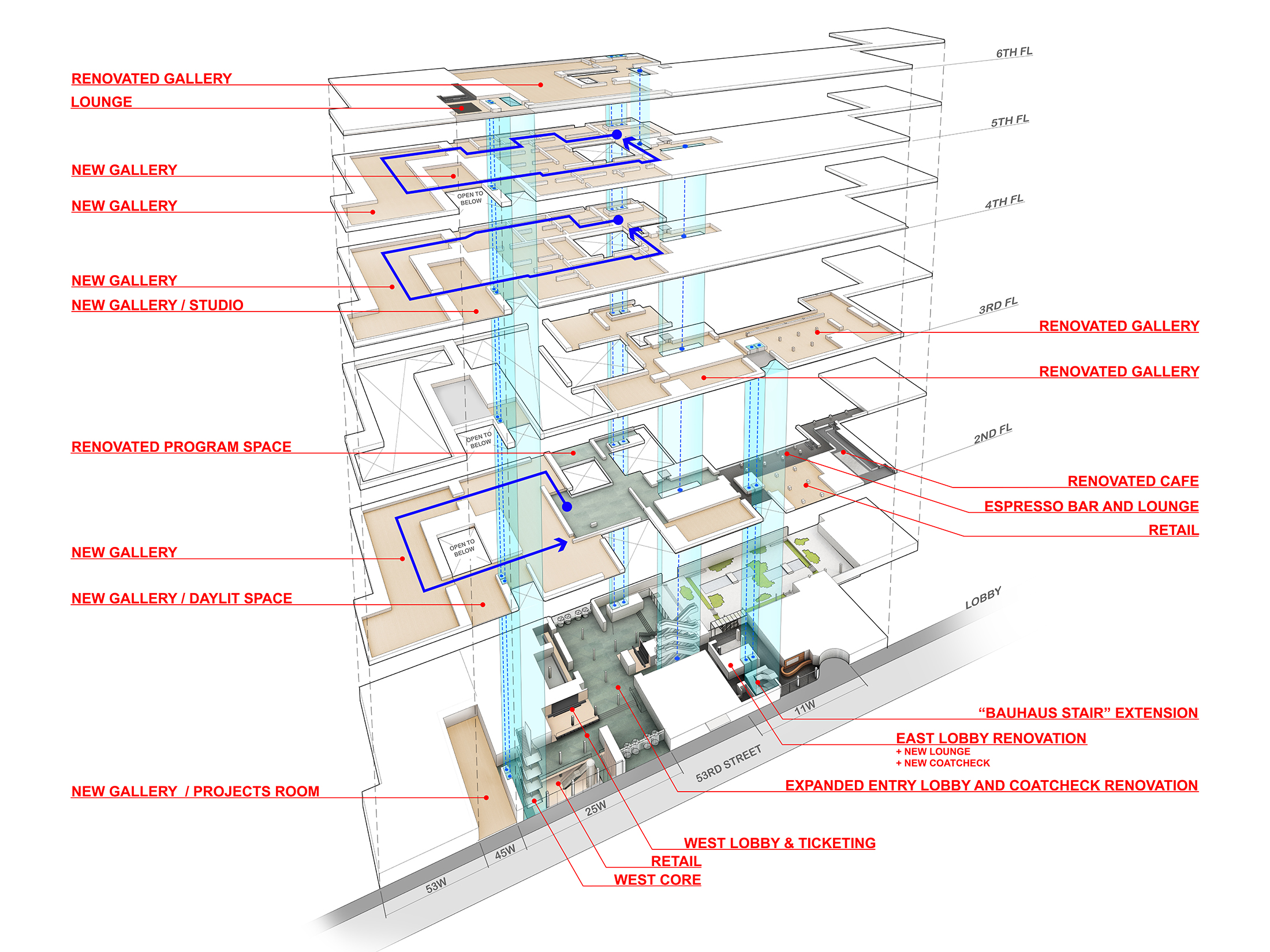
The first phase of the Museum of Modern Art’s much-discussed expansion, unveiled yesterday, includes a spiffy new bookshop, sleek lounge areas, and refurbished galleries. But a final breakdown of the new spaces reveals that the museum has actually reduced the amount of space dedicated to the display of art in the first portion of its $450 million construction project.
MoMA’s revamped second and third floors now boast a combined 15,000 square feet of gallery space, compared to the original 19,300 square feet. The reduction is due to the fact that the museum replaced a gallery on the second floor with a bookshop.
Elevation of The Museum of Modern Art on 53 Street with cutaway view below street level. © 2017 Diller Scofidio + Renfro.
This shift in proportions isn’t permanent. By the time the museum completes its Diller Scofidio + Renfro-designed expansion and renovation in 2019, it will have increased overall gallery space by 30 percent (vaulting it ahead of the expanded San Francisco Museum of Modern Art, which is 170,000 square feet). The addition to the west of the museum’s existing building—the former site of the American Folk Art Museum—will yield an additional 50,000 square feet of galleries.
But what this fact does mean is that most of the expanded MoMA’s new art space will come from the new building, while the institution is taking the opportunity to focus the existing space more on retail, crowd flow, and recreation.
View of the second floor looking east with new Museum Store, espresso bar and The Daniel and Jane Och Lounge. Photo by Iwan Baan.
(During a presentation to press yesterday, the museum’s director, Glenn Lowry, noted that the museum currently has “more gallery space now than we did for the last year,” when certain spaces were closed for construction. But the museum still has less square footage devoted to art in the east portion of the building now than it did before it began construction.)
The shift in emphasis in the first phase of the project coincides with a broader existential crisis among expanding museums: How much space should they dedicate to the display of art, and how much should they dedicate to public space increasingly demanded by visitors, who see these institutions not only as places to view art, but also as spaces to socialize?
MoMA’s final renovation plan increases gallery space by 30 percent and public space by 25 percent. Back-of-house space—mechanical areas, IT offices, and other operational must-haves—will have around 46,000 more square feet in the expanded building.